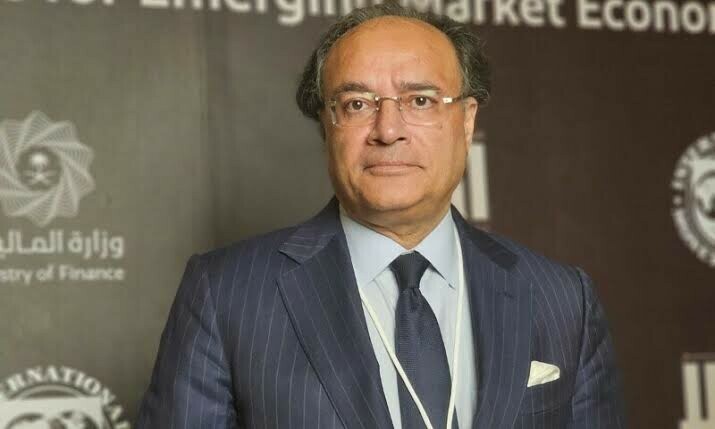WASHINGTON: Pakistan is expected to seek financial support for its debt-ridden economy and funds to address climate vulnerability at the 2025 Spring Meetings of the World Bank Group and the International Monetary Fund (IMF).
Finance Minister Muhammad Aurangzeb arrived in Washington on Sunday to attend the talks, which bring together finance ministers and central bank governors from 191 countries to address global challenges such as sovereign debt, climate finance, and reforming the international financial system.
Mr Aurangzeb is leading a high-level delegation, which includes State Bank of Pakistan Governor Jameel Ahmed, Finance Secretary Imdad Ullah Bosal and other senior officials.
The meetings, held twice a year, provide a rare forum for high-level consultations among global financial institutions and policymakers.
FM Aurangzeb arrives in Washington
This year, the meetings are scheduled from April 21 to 26.
Among the key sessions, a meeting organised by the Coalition of Finance Ministers for Climate Action is expected to witness discussion on driving economic prosperity, sustainable development and climate action amid constrained fiscal environments.
The event is taking place at a time when the IMF and World Bank were under pressure to overhaul how the global financial system supports low- and middle-income countries.
Civil society groups, faith-based organisations and even Pope Francis have called for a global debt relief, arguing that rising liabilities obstruct efforts to invest in sustainable development and climate resilience.
In the World Bank’s 2024 International Debt Report, Chief Economist Indermit Gill noted that since 2022, foreign private creditors have extracted nearly $141 billion more from public sector borrowers in developing countries than they disbursed in new financing.
Pakistan’s debt situation remained fragile with external repayment obligations of $30.6 billion over the coming months, according to the State Bank.
Meanwhile, both domestic and foreign liabilities continue to rise, squeezing fiscal space for development spending.
Climate financing needs
Pakistan is also seeking increased access to global climate finance. One of the world’s most climate-vulnerable countries, it has struggled to secure sufficient funding for adaptation and mitigation.
The World Bank estimated Pakistan needs $7 to 14 billion annually for climate adaptation; some assessments place the figure between $30 and $60bn a year.
Recently, the IMF announced $1.3bn in concessional climate funding for Pakistan through its Resilience and Sustainability Trust.
These funds aimed to support emission reduction, climate adaptation, and economic resilience against climate-related shocks.
Separately, Pakistan reached a staff-level agreement with the IMF earlier this year under a $7bn Extended Fund Facility (EFF), approved in September 2024 for a 37-month period.
The agreement enabled an immediate disbursement of $1bn, while the release of subsequent tranches was contingent upon favorable assessments of Pakistan’s economic performance during each review.
The IMF noted that Pakistan had made significant progress in restoring macroeconomic stability, reducing inflation, improving financial conditions, and strengthening its external position.
Published in Dawn, April 21st, 2025


